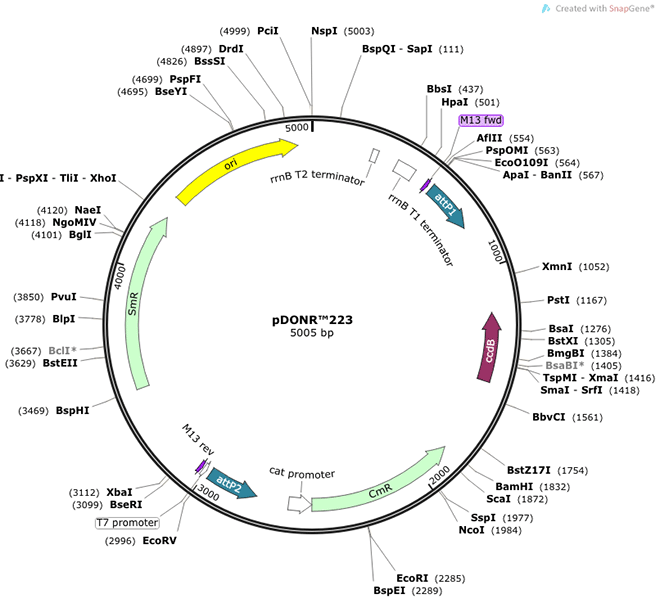Huntington's disease (HD), a neurodegenerative disorder characterized by loss of striatal neurons, is caused by an expansion of a polyglutamine tract in the HD protein huntingtin. This gene encodes a protein that is homologous to the human huntingtin-associated protein 1. The human protein interacts with huntingtin, with two cytoskeletal proteins (dynactin and pericentriolar autoantigen protein 1), and with a hepatocyte growth factor-regulated tyrosine kinase substrate. The interactions with cytoskeletal proteins and a kinase substrate suggest a role for this protein in vesicular trafficking or organelle transport. Two transcripts encoding different isoforms have been identified. [provided by RefSeq, Jul 2008]
大鼠 Hap1 (NM_024133) cDNA克隆
| 大鼠 Hap1 (NM_024133) cDNA克隆 | transcript variant 1 |
| 大鼠 Hap1 (NM_177982) cDNA克隆 | transcript variant 2 |


